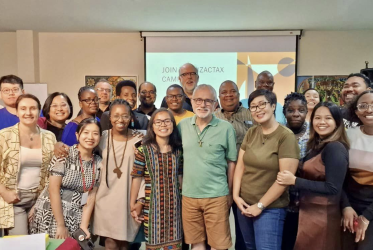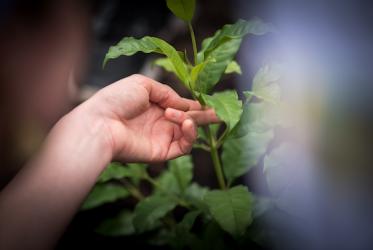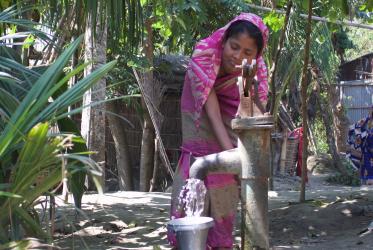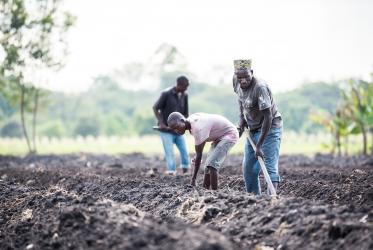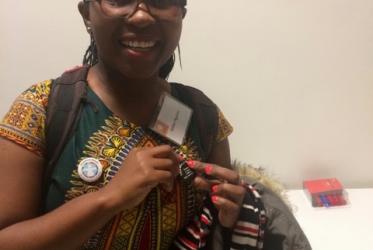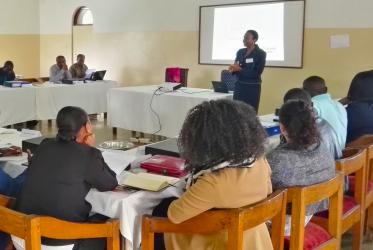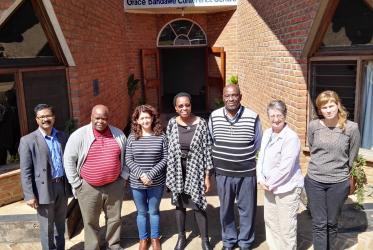Displaying 1 - 17 of 17
08 September 2023
Church of South India eco-ministry featured on UNESCO website
17 February 2020
New WCC “Eco Ambassadors” pledge to protect our ecology
06 January 2020
Eco-School promotes blue communities, green churches
19 November 2019
WCC Eco-School begins in Thailand
07 November 2019
Rev. Damon Mkandawire: “A man is a gender justice champion”
03 October 2019
African youth takes stand at first ever WCC Eco-School
03 August 2017
Applications open for WCC Eco-School
10 May 2017
“Overcoming economic injustice” vision of WCC’s Athena Peralta
23 February 2017
Letters to the future: Eco-justice visions in South Africa
13 December 2012
